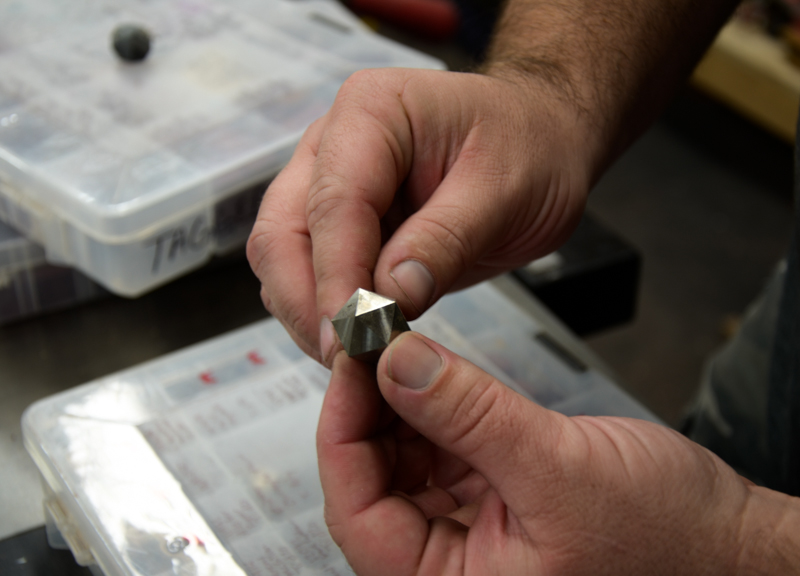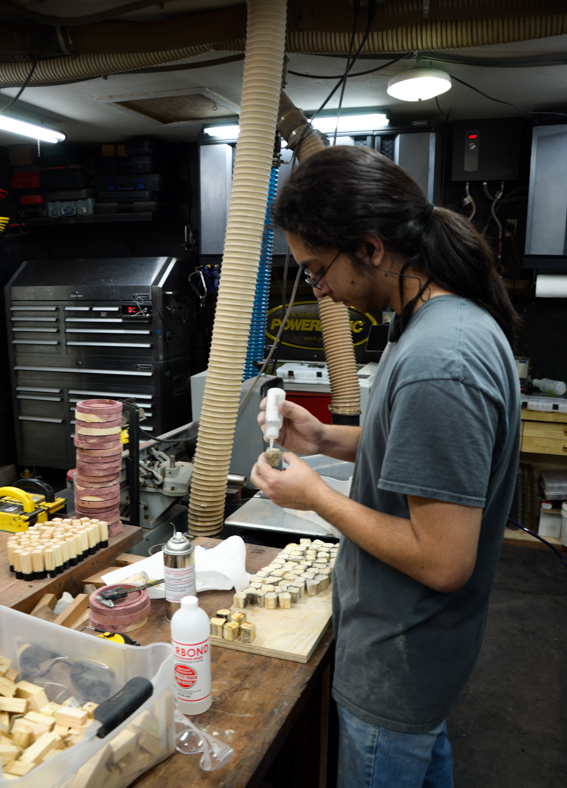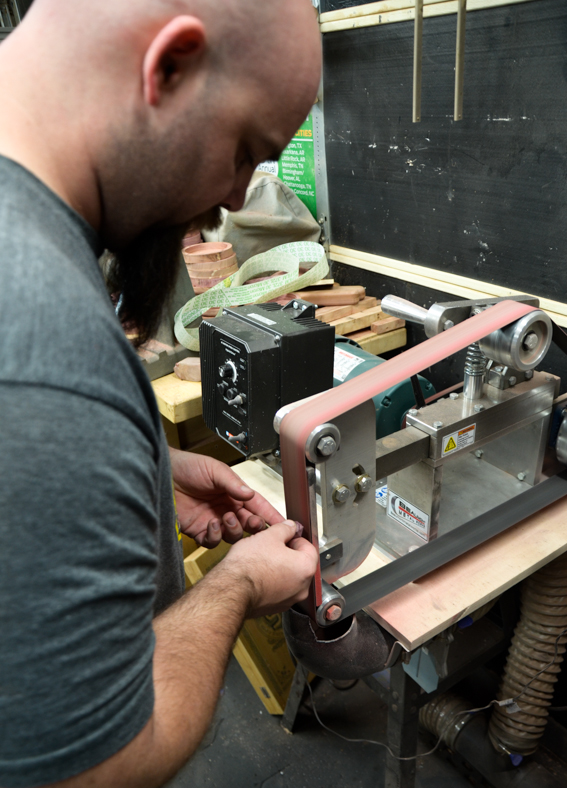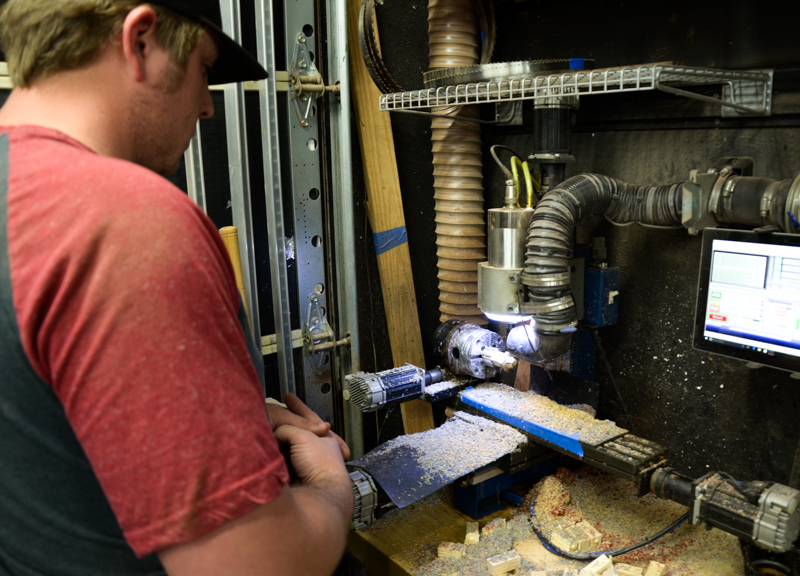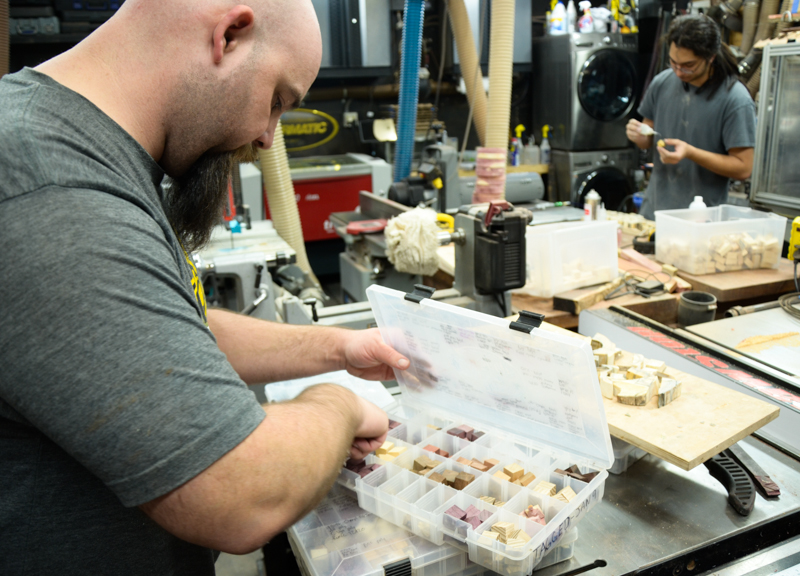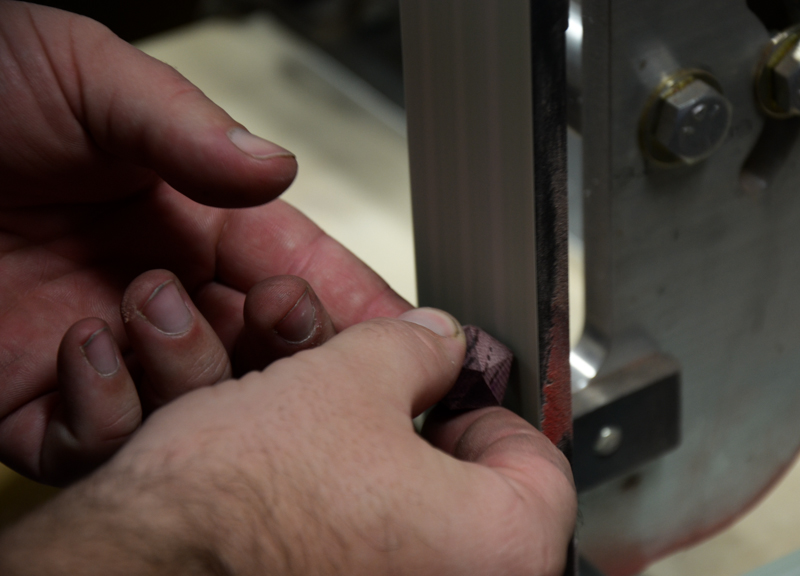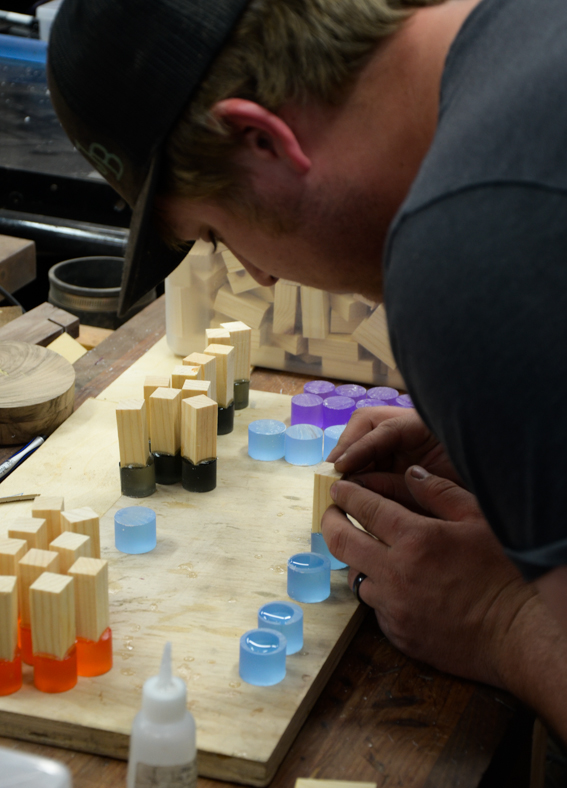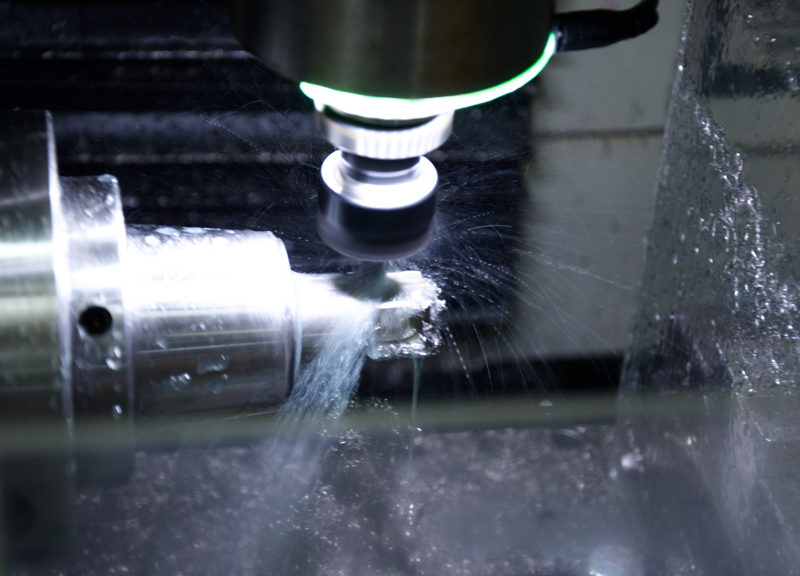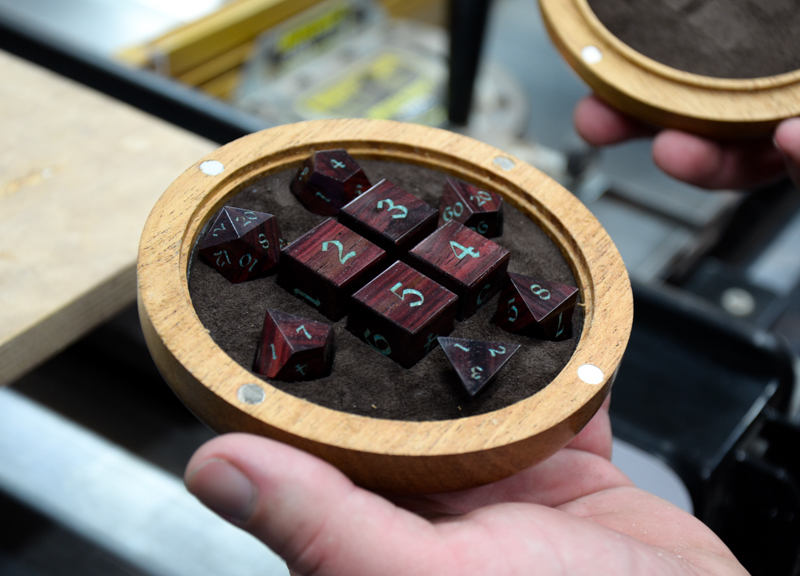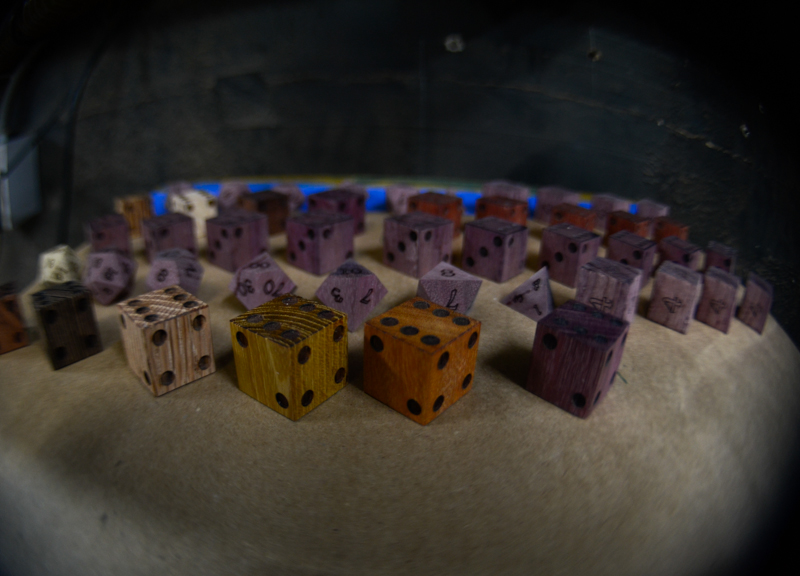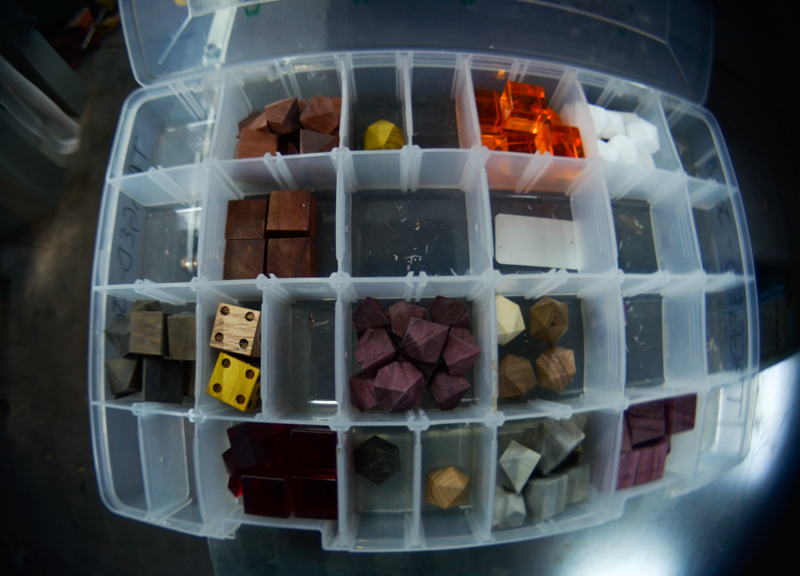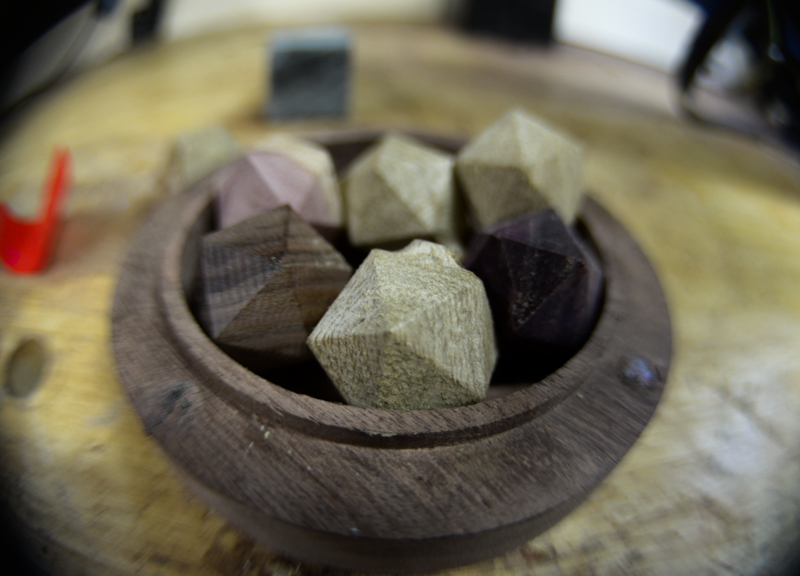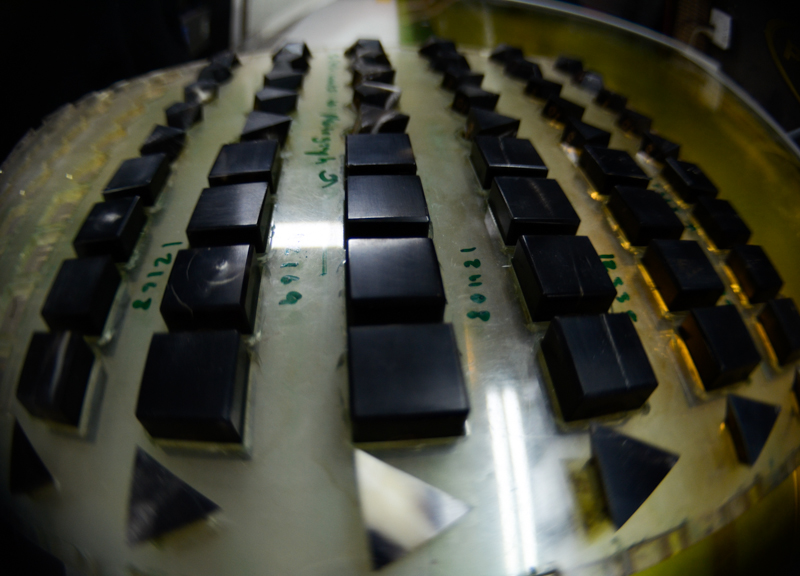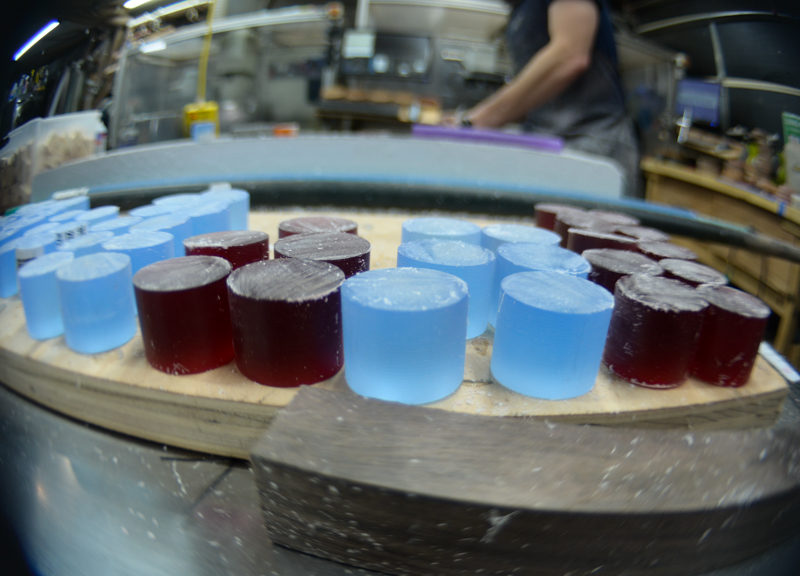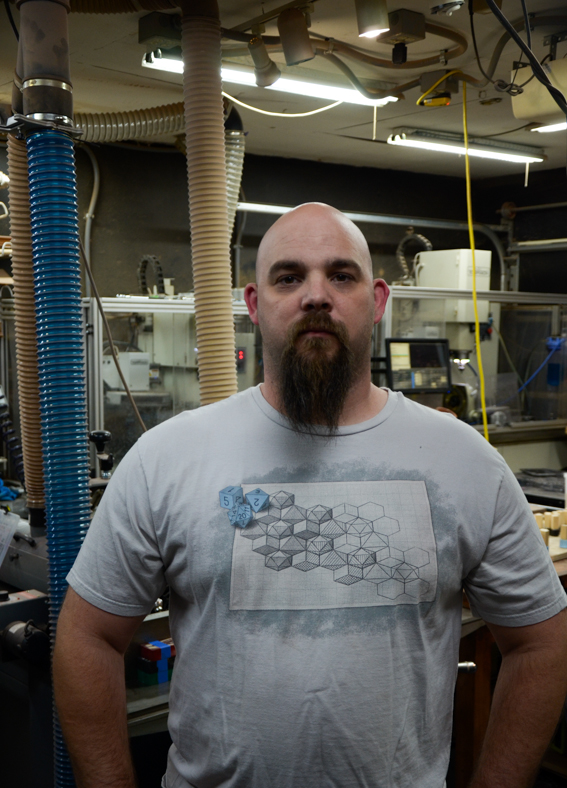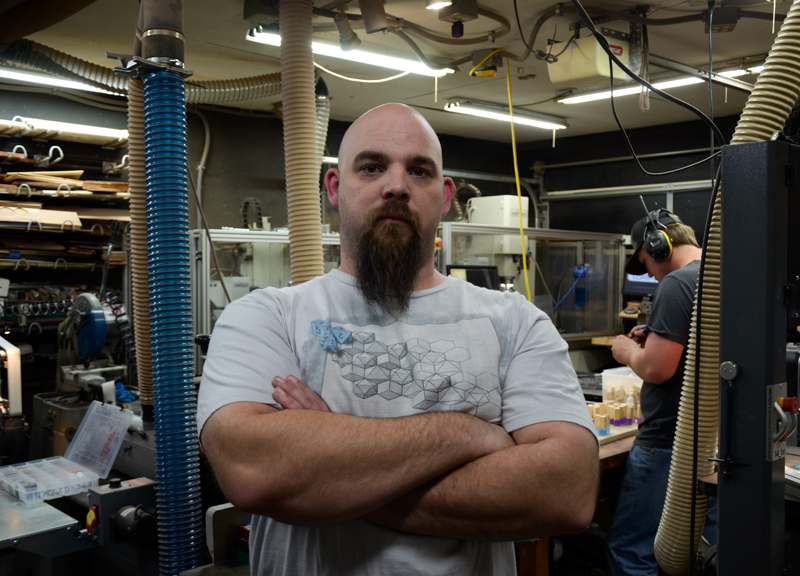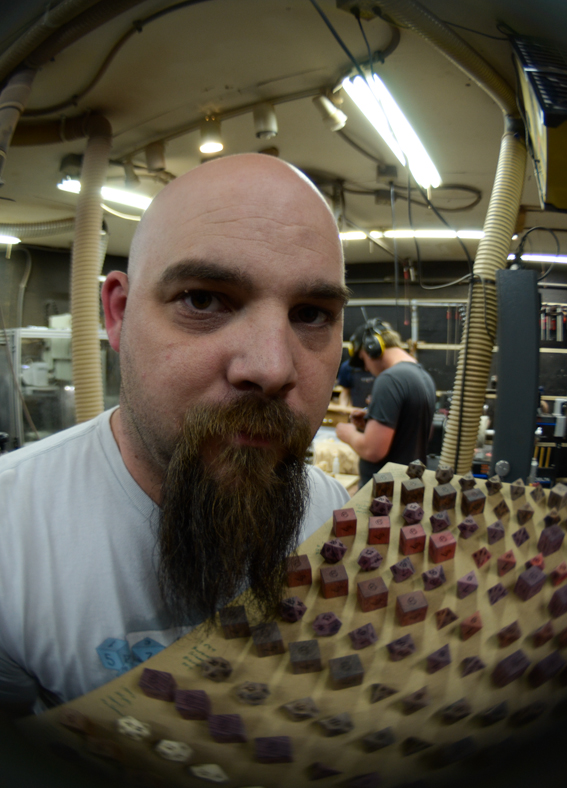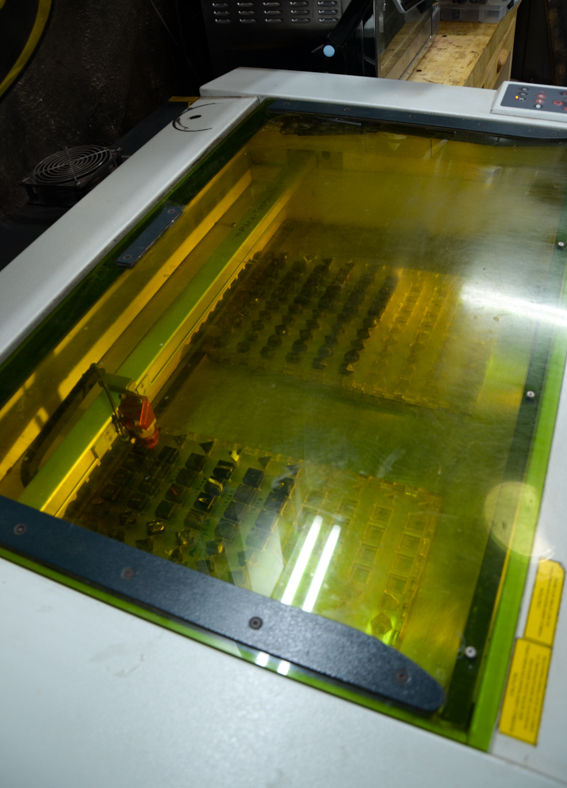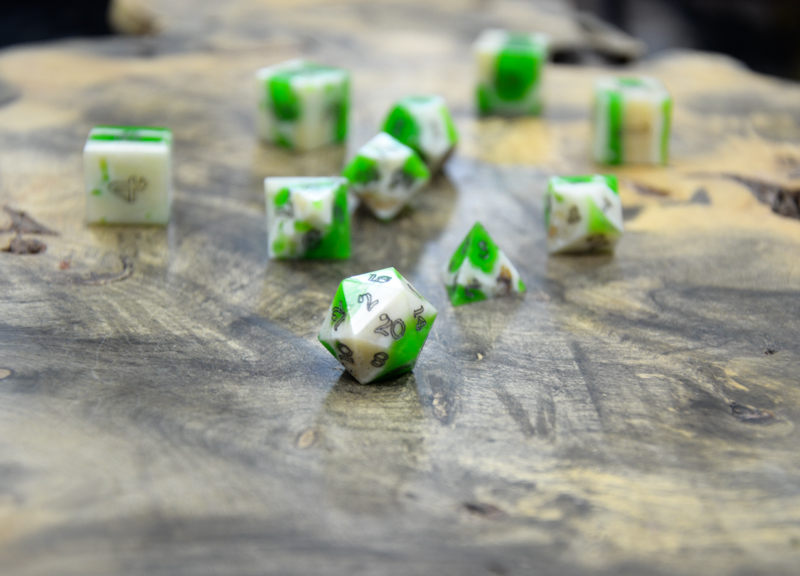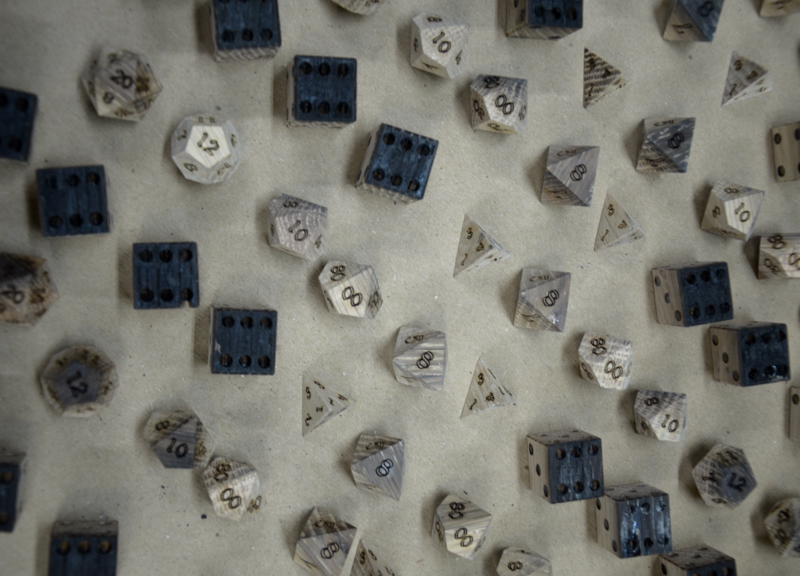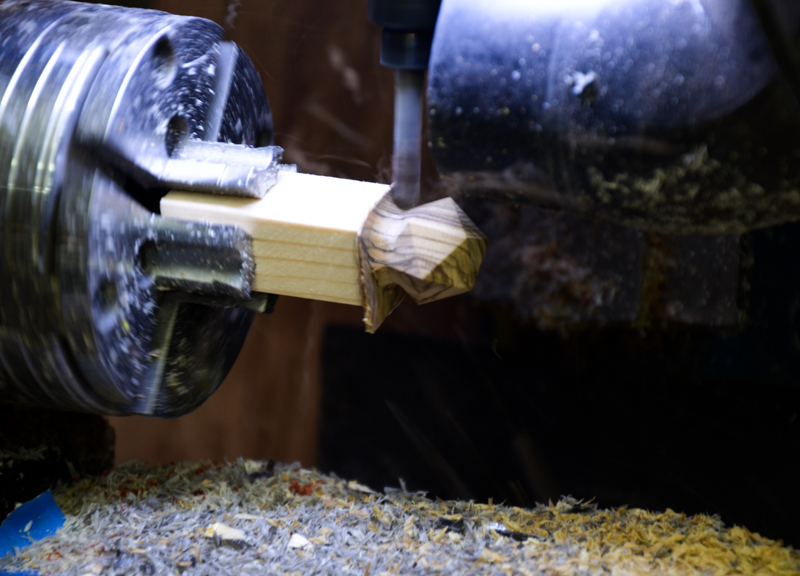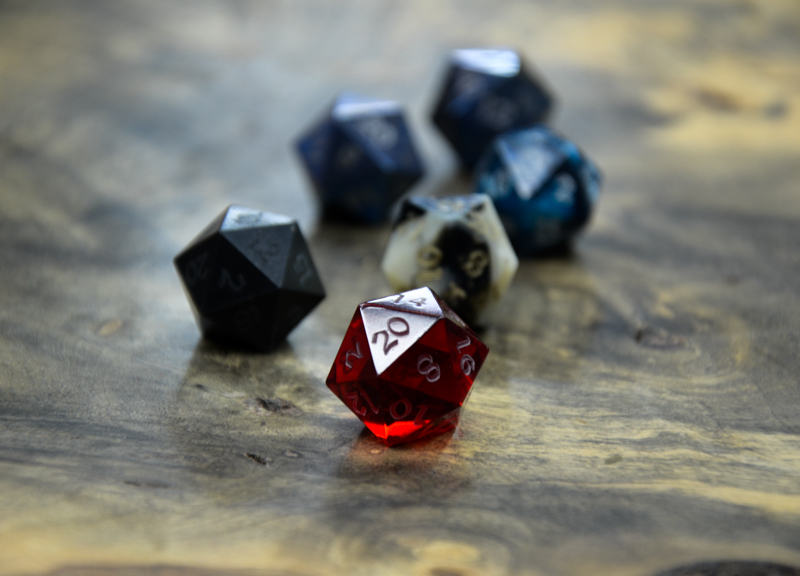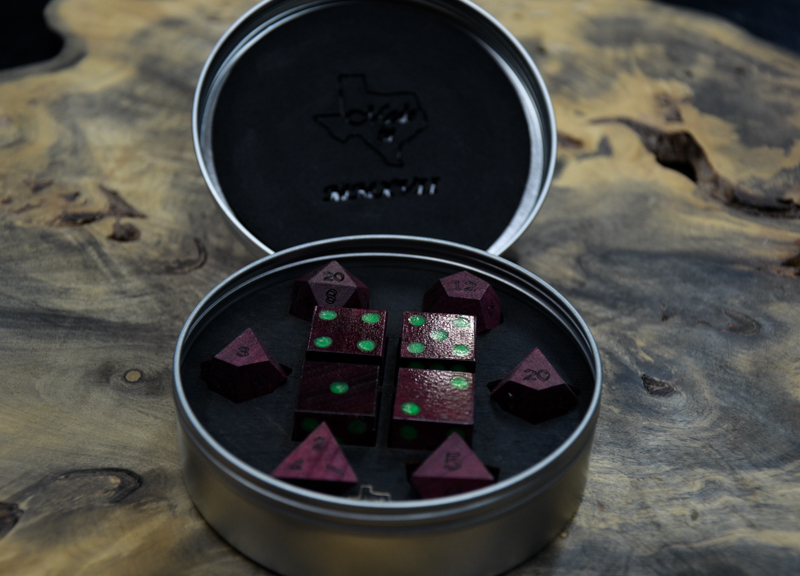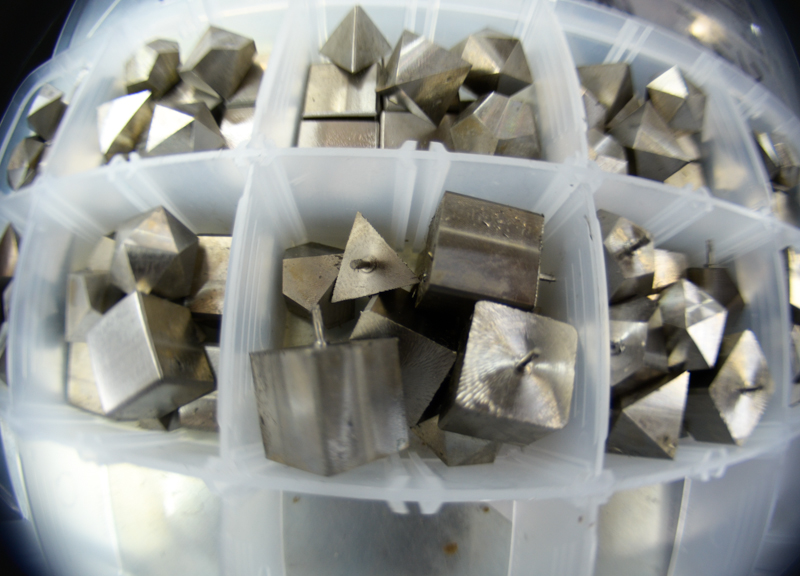From A Garage Workshop In Mesquite, This Company Produces Some Of The Most Gorgeous — And Expensive — Dice In The World.
All photos by Travis Baugh (unless otherwise marked).
Charlie Brumfield used to consider himself a pretty average guy. He spent his time working on cars, eating good barbecue and playing table-top games — Dungeons & Dragons, specifically — with his friends.
Then, one night a few years back, a roll of the dice literally changed his life. A few weeks later, he would find himself the nation’s leading distributor in high-end table-top gaming dice.
That transition happened out of necessity, really. Brumfield and his table-top gaming group had just started a new game of The Dresden Files RPG, but were having a hard time finding the special dice needed to play the game. This particular game required a set of “fudge dice” that only features plus and minus signs on its sides. After checking out seemingly every gaming shop in town to no avail, Brumfield thought to himself that it couldn’t be too hard to try his hand at making a few sets himself. So he set out to the local woodworking shop, purchased a handful of blanks made from different exotic woods and went to work with a handsaw and a drill press.
Even with his handyman experience from working on cars, the first set of dice took him “hours and hours” to make — mostly, he says, because he didn’t have the right tools. He didn’t love the craftsmanship on those first sets, but the dice were functional enough. And his friends were instant fans.
“I thought I made some really crappy, sort of cube-shaped dice,” Brumfield says. “But all the players loved them.”
The dice were such a hit, in fact, that Brumfield’s friends were convinced that their pal had found his new calling. Brumfield wasn’t so sure. Would people really be into buying dice at the price he would need to ask for them in order to make the effort worthwhile? He doubted it, but he decided to take the chance anyway. At the time, he was working practically for free, helping his family keep their sporting goods store afloat. With a pregnant wife and bills to pay, he figured he didn’t have much to lose. So, inspired by his friends’ enthusiasm, he spent a day building a website for this new business idea, which he called Artisan Dice. He launched a Kickstarter campaign that same day, too.
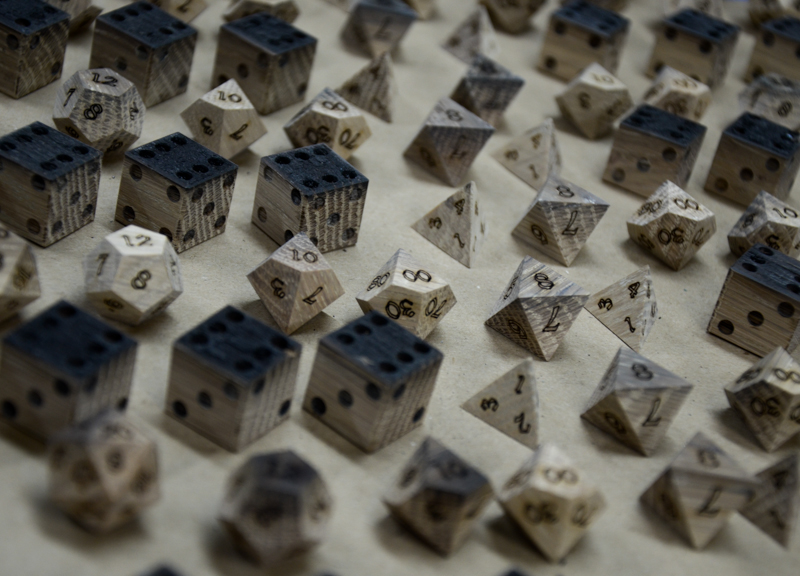
These Artisan Dice creations are made of old Jack Daniel’s whiskey barrels. Photo by Travis Baugh.
He doubted anything would come of it. But the next morning, Brumfield woke up and checked the early returns on his efforts and couldn’t believe what he saw.
“The first day, we had about $1,700 dollars in orders,” Brumfield says. “So, overnight, I was like ‘OK, I guess I’m going to learn how to make dice for a living.'”
In time, that first Kickstarter would prove wildly successful, too, raising more than $91,000 for his efforts. That was more than enough for Brumfield to start producing six-sided dice made from exotic woods like wenge wood from The Congo, and even his naturally colored and visually stunning Purple Heart designs. Orders were so plentiful, actually, that Brumfield had to hire a few extra hands to help fulfill them and build the dice from the makeshift workshop he’d set up in his garage just outside of Dallas in Mesquite, Texas.
The early interest, turns out, wasn’t an aberration. Word of artisanal dice spread fast in the table-top gaming community and, soon, people started asking about ordering sets of polyhedral dice. While all dice are technically “polyhedral,” this term refers to the multi-sided dice used in many table-top games like Dungeons & Dragons.
“I was like, ‘I have no clue how to make those,'” Brumfield says with a laugh.
Milling a standard six-sided die is a relatively simple task compared to what it takes to make a twenty-sided one — or a “d20” as it’s commonly called in the gaming community. Brumfield would need a CNC (computer numerical control) machine for those. But that would take more money: CNC machines start at $6,000 on the low end, to make any of those.
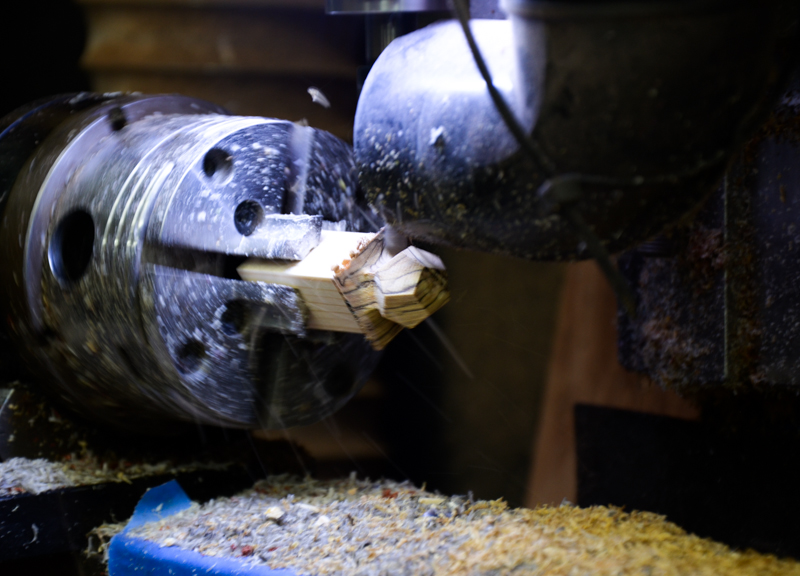
A worker at Artisan Dice gets to work on the company’s CNC machines. Photo by Travis Baugh.
Again, Brumfield turned to the online table-top gaming community for support, adding another backer level his Kickstarter to see if there was enough interest in his new company making polyhedral dice. His goal was met within 10 minutes of being posted.
“I just thought, ‘Well, I guess I’ll become a machinist now,'” Brumfield says, still laughing at that early interest.
Having a CNC machine allowed Brumfield and his team to not just start making polyhedral dice but to speed up their overall production rates. Before long, Brumfield extended his Kickstarter efforts: This time, he asked for $9,000; the hope was that it would simply help his company streamline its production. In the end, that last campaign would raise almost $300,000 dollars for Artisan Dice’s efforts.
Thanks to that support, Brumfield is now a far cry from a hobbyist dice-maker he once was. Now, Artisan Dice is a thriving business, and Brumfield’s daily grind is centered around maddening efforts of precision — like how to make engravings that are smaller than the width of a human hair — and keeping his business running as efficiently as possible.
At this point, his dice are also far removed from the rudimentary ones he started out making. More than just gorgeous, Artisan Dice’s creations are genuinely exotic — a point of pride for Brumfield. That also means his dice a bit pricey. On the lower end of the spectrum, a set of 10 ash wood dice from Artisan Dice costs around $100. When made with rarer woods and materials, the prices can be much higher. His “Necromancer” lines of dice are made of animal bones and horns run from $327 (gator jaw bone) to $475 (deer antler) per set.
“That does get you one of the swankiest sets of dice on the planet, but it’s also affordable,” Brumfield says. “It’s expensive — don’t get me wrong, I get that — but it’s not like buying a luxury car. It’s an obtainable luxury.”
Well, to a degree. Some of Artisan Dice’s offerings are truly exorbitant –like its titanium offerings or its dice made from old Jack Daniel’s whiskey barrels. But none really compare to the company’s mammoth tusk dice, which run $2,176 per set.
The mammoth tusk dice are the real deal, too, crafted from 10,000-year-old finds made in the Arctic Circle. Every summer, when the ice melts, small groups of people go out and search for these pieces of tusk and bone to then turn around and sell all over the world — either by the pound or, if it’s a nice enough discovery, in bulk to a museums. Because of the extremely low temperatures of the Arctic Circle, these bones are preserved for long periods of time, and can be found with their fur, and sometimes even their meat, remaining intact. The tusks Brumfield uses for his dice are generally of the gnarlier and more damaged variety — to the untrained eye, they often look like rotting logs — and not of much desire to collectors. But with their new machines, Brumfield and his team can salvage these pieces by stripping off the outer layers and utilizing the good ivory that exists on their insides. Artisan Dice also reinforces these pieces with a binding agent to ensure the tusk can handle the milling process and won’t chip or break when rolled. But Brumfield also says his team is careful not to alter these pieces too much, either.
“We preserve the cracks and things in it,” Brumfield says. “It took 10,000 years of Mother Nature’s work to make it look this cool.”
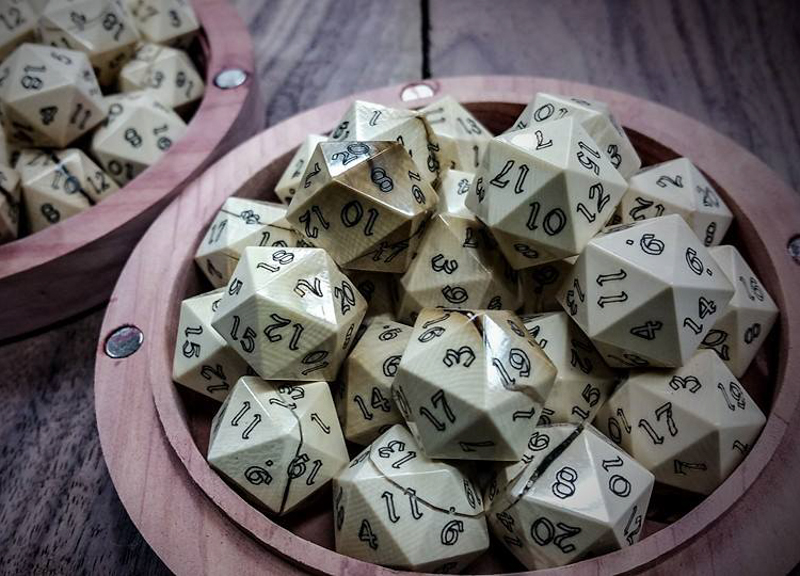
Artisan Dice’s mammoth tusk set runs $2,176. Photo courtesy of Artisan Dice.
His customers seem to agree. Even with a single mammoth tusk d20 going for $248 — making it among of the most expensive dice in the world — Brumfield says Artisan Dice sells hundreds of these pieces annually, as well as a handful of full sets.
But these prices perhaps aren’t as crazy as you might think. With interest in table-top gaming rising, high end accessories are becoming more and more popular in the community. Artisan Dice isn’t the only player in this market, either. A company called Wyrmwood Gaming recently entered a similar space, creating artisan dungeon master screens. And long before Brumfield got into making dice, a company called Geek Chic proved the market’s existence with its high-end heirloom quality gaming tables that go for thousands of dollars.
“What happens is the nerds that play D&D in high school — the same kids that you’d shove in a locker — they grow up to become CFOs and CEOs that make thousands of dollars,” Brumfield says. “But their hobbies still include Dungeons & Dragons, and that’s where they spend their money.”
Brumfield wholly concedes that his own creations are not for people who “dabble” in table-top gaming. But he also says that the market for Artisan Dice is bigger than one might expect. To that end, the company is now working toward moving away from its made-to-order model and continuing to improve its craft along the way.
“I want to be the best at what I do,” Brumfield says. “We are our own competition, and I’m really an asshole to work for — what was good enough yesterday is not good enough today.”
In other words: He’s no longer playing games.
“It’s been a wild ride,” Brumfield says with a smile, “and a lot of hard work.”
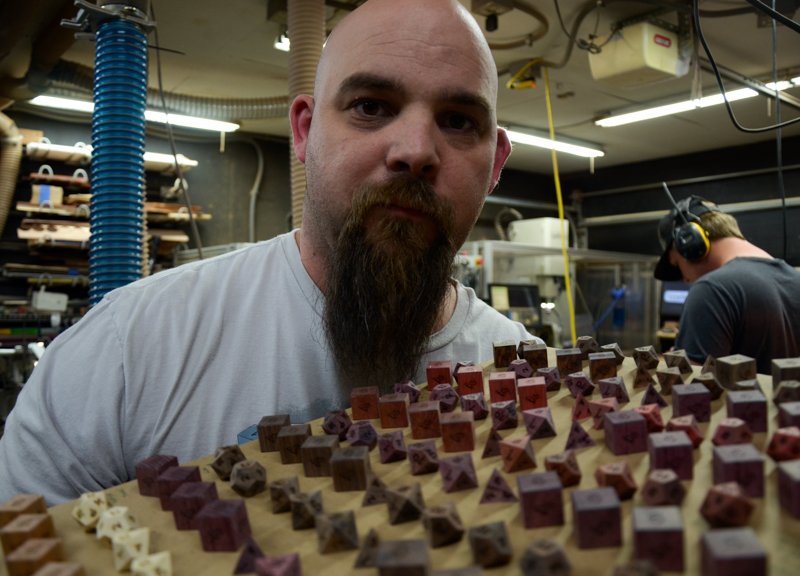
Charlie Brumfield never expected to be a dice-maker. Photo by Travis Baugh.

